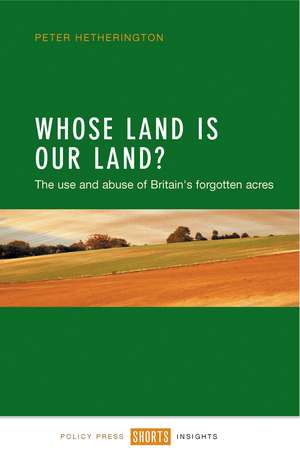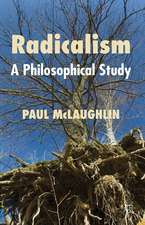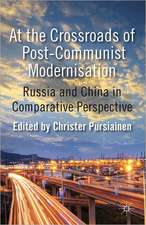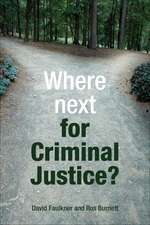Whose Land is Our Land?: The Use and Abuse of Britain's Forgotten Acres
Autor Peter Hetheringtonen Limba Engleză Paperback – 25 aug 2015
In recent decades, rising land prices and ever-increasing demand for housing have made it incredibly difficult for farms to sustain themselves in Britain—with dangerous consequences for food supplies. Government attention to the issue has been limited at best, which has led to speculation and the loss of more and more farmland. With Whose Land Is Our Land? Peter Hetherington mounts a powerful argument for a more active, forward-thinking policy, one that acknowledges the importance of farming, rural society, and food security and takes stronger action to curb speculation and rampant overbuilding.
Preț: 65.07 lei
Nou
Puncte Express: 98
Preț estimativ în valută:
12.45€ • 13.03$ • 10.30£
12.45€ • 13.03$ • 10.30£
Carte disponibilă
Livrare economică 17-31 martie
Livrare express 28 februarie-06 martie pentru 15.58 lei
Preluare comenzi: 021 569.72.76
Specificații
ISBN-13: 9781447325321
ISBN-10: 144732532X
Pagini: 72
Dimensiuni: 127 x 197 x 10 mm
Greutate: 0.14 kg
Editura: Bristol University Press
Colecția Policy Press
ISBN-10: 144732532X
Pagini: 72
Dimensiuni: 127 x 197 x 10 mm
Greutate: 0.14 kg
Editura: Bristol University Press
Colecția Policy Press
Notă biografică
Peter Hetherington is a journalist who writes regularly for the Society Guardian on communities and regeneration.
Cuprins
Land for All?
The People’s Land?
Land Denied
Land Secure?
Unclear Ownership
Land for the People
Villages and neighbourhoods rising
Highlands and islands rising
Will England Rise?
The People’s Land?
Land Denied
Land Secure?
Unclear Ownership
Land for the People
Villages and neighbourhoods rising
Highlands and islands rising
Will England Rise?
Recenzii
“In his thought-provoking and insightful book, Hetherington poses an important question about the future of Britain, do we use land for the benefit of all our citizens or for a privileged few? It is the right question to ask.”
“Hetherington breaks the extraordinary silence that surrounds land ownership and compels us to address what should be one of the great political controversies of modern Britain.”
“[Peter Hetherington] puts at the center concerns about who owns Britain and details the consequences this can have for individuals, for communities and for society at large.”










